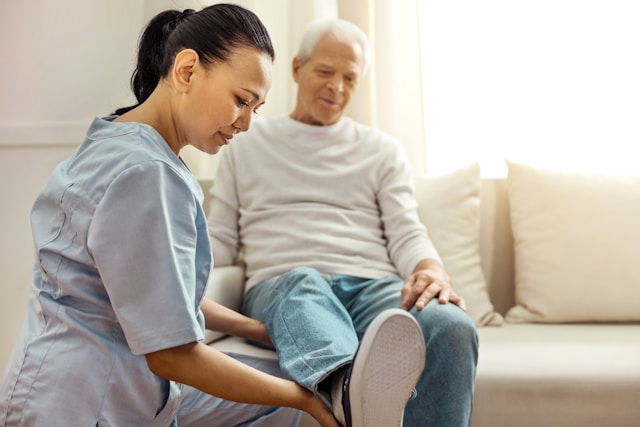
Recovering from a stroke can be a long and challenging journey, but with the right rehabilitation exercises, many people can regain strength, movement, and independence.
A stroke happens when blood flow to a part of the brain is blocked or when there is bleeding in the brain.
This can cause damage to brain cells and lead to problems with movement, speech, memory, and coordination.
Rehabilitation exercises play a big role in helping stroke survivors rebuild their abilities and improve their quality of life.
After a stroke, the brain has an amazing ability to adapt and reorganize itself, a process known as neuroplasticity. This means that even if some parts of the brain are damaged, other parts can take over certain functions through repeated practice and exercise.
Research shows that starting rehabilitation as early as possible, ideally within days after the stroke, can lead to better outcomes.
There are different types of rehabilitation exercises, and the right ones depend on which part of the body was affected and how severe the stroke was. One of the most common types of rehab exercises is physical therapy.
These exercises help improve strength, balance, and coordination. For example, leg lifts, walking practice, or standing exercises can help rebuild the ability to walk. Arm exercises, like reaching and stretching, can improve hand and arm movements.
Occupational therapy is another important part of stroke recovery. It focuses on daily tasks like dressing, bathing, cooking, or using your hands for writing or picking up objects.
Exercises in occupational therapy often involve fine motor skills, such as squeezing a soft ball, using putty, or practicing buttoning a shirt. These small tasks help retrain the brain and improve independence.
Speech and language therapy may be needed if the stroke affected the parts of the brain responsible for speaking, understanding, or swallowing. Speech therapists guide patients through exercises to strengthen the muscles used in speech or swallowing and help improve communication skills.
Some people also benefit from cognitive exercises to help with memory, problem-solving, and concentration. These might include puzzles, memory games, or even computer-based training programs. Research has shown that brain-training exercises, when combined with physical therapy, can improve overall function and confidence.
In recent years, new technologies have been introduced into stroke rehabilitation. Robotic-assisted therapy, virtual reality, and electrical stimulation are being studied and used in clinics to support recovery.
For example, robotic arms can help patients practice movements repeatedly, and virtual reality games can make therapy more engaging and motivating.
One of the most important things to remember is that consistency matters. Doing exercises regularly, even at home, can speed up recovery and help maintain progress. Caregivers and family members can play a big role by encouraging and supporting the person during their rehabilitation journey.
It’s also important to work closely with a healthcare team to develop a personalized rehab plan. Everyone’s stroke and recovery experience is different, so exercises should be tailored to each person’s needs and goals. Doctors, therapists, and nurses can monitor progress and make adjustments to the program as needed.
Rehabilitation after a stroke may take time, but many people make great improvements with the right care and effort.
Staying positive, practicing regularly, and getting support from loved ones can make a big difference in recovery.
If you care about stroke, please read studies that diets high in flavonoids could help reduce stroke risk, and MIND diet could slow down cognitive decline after stroke.
For more health information, please see recent studies about antioxidants that could help reduce the risk of dementia, and tea and coffee may help lower your risk of stroke, dementia.
Copyright © 2025 Knowridge Science Report. All rights reserved.



